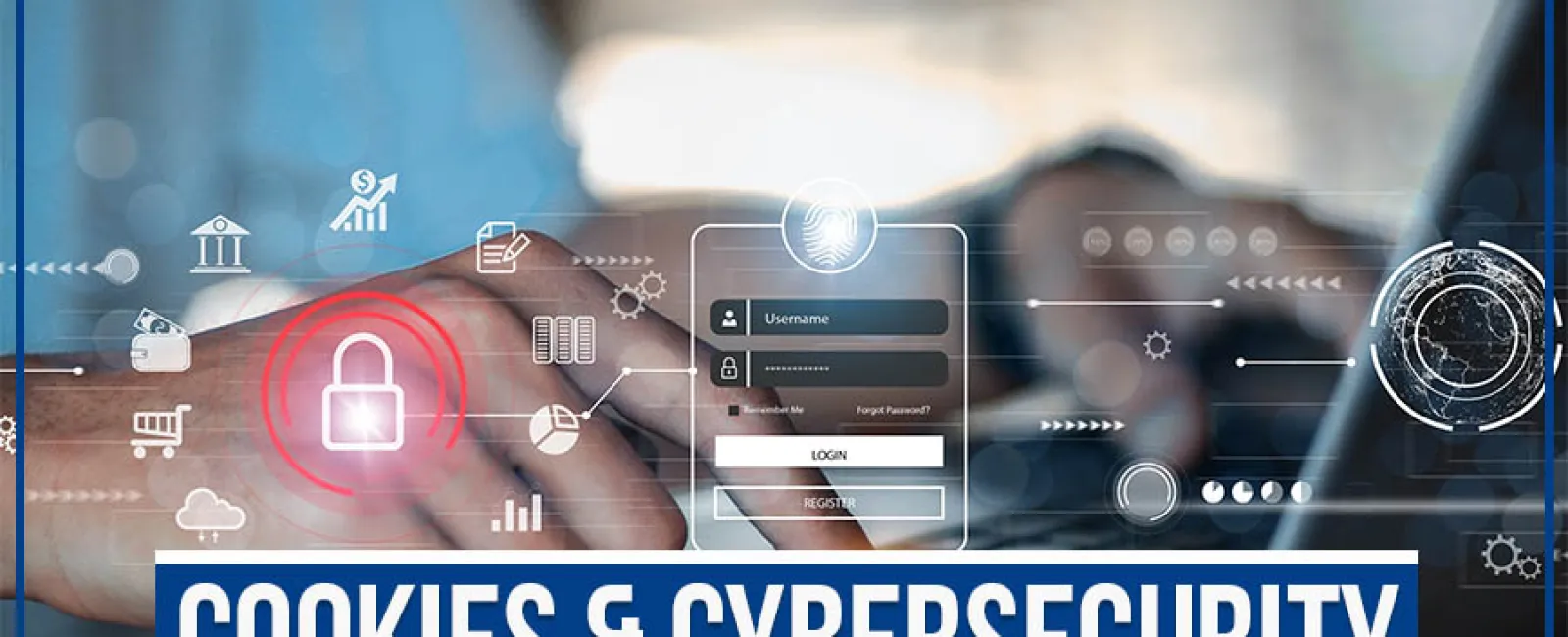What are Internet Cookies?
Before discussing how cookies can jeopardize your cybersecurity, let's take a step back and answer the question, "What are internet cookies?"
Cookies are text files that contain small amounts of information about you. When you visit an internet browser domain, that website will send a cookie to your web browser. Your web browser will then store that cookie on your device so the website can recognize you the next time you visit.
For example, let's say you visit Amazon.com and add a few items to your shopping cart. Once you add those items, Amazon will send a cookie to your web browser. The next time you visit Amazon—10 minutes later or ten days later—that cookie will tell Amazon which items are still in your shopping cart, so you don't have to start from scratch.
Cookies aren't just used for online shopping carts, though. They're also used for remembering your website login information, tracking which ads you've seen, and much more.
Key Takeaways -
- Cookies are files that websites store to track your browsing activity.
- They can be used to keep track of items you've added to your shopping cart or to remember your login credentials.
- While cookies are generally harmless, they can also be a security vulnerability.
- Cookie-based attacks occur when malicious actors use cookies to steal personal information or infect devices with malware.
- To protect against cookie-based attacks, only use trusted websites and always log out of accounts when finished browsing.
- A robust cybersecurity regime can protect your business from the risk of data breaches.
Does Your Business Need IT Support?
The Dangers of Internet Cookies
Now that we've answered the cookie question, it's time to discuss how they can be dangerous. As we mentioned, cybercriminals can use cookies to track your online activity and even steal your personal information. Here's how they do it:
When you visit a website, it sends a cookie to your web browser. However, some malicious websites will also include tracking elements in those cookies. These tracking elements—often invisible to users—allow cybercriminals to see which websites you visit and what you do on those websites. When armed with this information, cybercriminals can target you with custom-tailored malicious content—such as phishing emails or drive-by downloads—that is designed to trick you into divulging sensitive information or infecting your device with malware.
Cybercriminals sometimes place tracking elements in advertising cookies served by third-party advertising networks. These tracking elements allow cybercriminals to see which advertisements you click on and what types of products or services you're interested in. Third parties can use this information to target advertising or sell it to other interested parties—including scammers and hackers—who can use it for nefarious purposes.
As tempting as it may be to hit the "accept" button on every cookie banner that pops up, it's important to remember that not all cookies are created equal. Some cookies are harmless and pose no threat to your cybersecurity posture; others are malicious, as cybercriminals can use them to detract personal information or infect your device with malware.
Don't Get Cookie-ed: Why Businesses Need to Up Their Cybersecurity Game
Businesses, large and small, are under constant attack from nefarious forces seeking to steal sensitive data. A 2022 study found that phishing remains a significant threat to small businesses and users worldwide. According to the survey, small businesses - an organization of 1-250 employees will encounter one in 323 emails to be malicious. And it's not just email - malicious cookies are also being used to track internet users and serve targeted advertisements.
So, how can businesses protect themselves? The first step is educating employees about the significance of cybersecurity and the ways cookies can track and collect data. Next, companies should consider implementing a comprehensive cybersecurity solution that includes malware and cookie protection. Finally, stay up-to-date on the latest cybersecurity threats and solutions.
Also, Read - A Breakdown of the Best Network Design Practices
Adopting a Reliable Cybersecurity Regime
As the world moves online, it's more important than ever to ensure your website is secure. That means having a cybersecurity regime that will protect your customers' data and ensure that your site isn't vulnerable to attack. But how can you adopt such a regime? Read on to find out.
